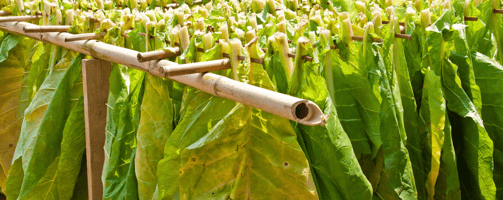The SIS Group (the Mauritius-based holding company for both GCC and SIS Inspections) is pleased to...
Latest Trading Conditions in West Africa
West Africa is currently experiencing significant positive shifts in the direction of international trade, driven largely by industrial investments, regional integration efforts, and evolving global trade dynamics.
Industrial Investments and Economic Diversification
West African nations are actively pursuing industrialisation to further reduce their reliance on raw commodity exports. Notable examples of this trend include Ghana's $12 billion Petroleum Hub Project with the TCP-UIC Consortium, featuring three refineries and five petrochemical plants. Côte d’Ivoire has recently attracted a $10 billion investment from ENI for offshore oilfield development. Nigeria has secured a $3 billion loan facility from Afrexim Bank to build an industrial park and invest in light manufacturing. And Senegal is advancing its industrial development programme with a $75 million African Development Bank loan.
Regional Integration and Infrastructure Development
Continuing efforts to enhance regional integration are evident through initiatives like the African Continental Free Trade Area (AfCFTA), with all 15 West African countries now having signed the agreement, and14 ratifying it. Ghana is participating in the Guided Trade Initiative to accelerate AfCFTA implementation.
In the energy sector, the World Bank approved the $1.6 billion West Africa Regional Electricity Market Program (WA-REMP) to bolster regional power system integration, enhance energy security, and advance the transition to a more affordable, sustainable, and lower carbon power sector.
Strategic Alliances and Trade Corridors
The Alliance of Sahel States (AES), comprising Burkina Faso, Mali, and Niger, is seeking sea access through Morocco's Atlantic ports, following their withdrawal from ECOWAS. This move aims to diversify trade routes and reduce dependency on traditional corridors.
China is enhancing its trade relationships with West Africa by investing in hybrid logistics and infrastructure. The Chengdu-Europe-Africa rail-sea transport line connects China to Morocco via Hamburg, Germany, reducing transit times and improving freight reliability. China has also committed to importing $300 billion worth of goods from Africa in 2025.
Trade Policy and Economic Outlook
The African Development Bank (AfDB) has revised its 2025 economic growth forecast for Africa downward to 3.9%, citing global trade uncertainties primarily stemming from the new U.S. trade tariffs and the retaliatory measures implemented by other nations. Despite these challenges, robust expansion is projected in countries like Ethiopia, Niger, Rwanda, and Senegal.
In a significant leadership change, Sidi Ould Tah, former Finance Minister of Mauritania, has been elected as the new president of the AfDB. He assumes leadership at a crucial time, as the bank faces significant challenges including the potential loss of $555 million in U.S. funding of the African Development Fund (ADF).



